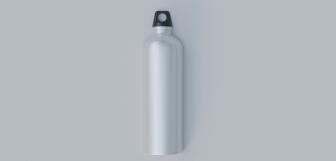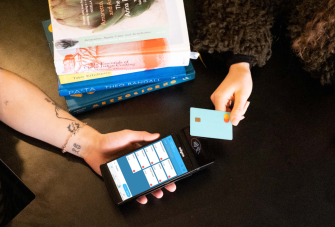What are white label products: a practical guide for retailers
What if we were to tell you that by next week, you could walk into a store (or open a website with an e-commerce store) and see your own brand on the shelf?
Not years from now. Not after building a factory or hiring a team of scientists. We mean right now. A massage gun with your logo on it. A memory foam dog bed with your label stitched in.
It sounds too good to be true, doesn’t it? But this is real, and it’s happening all around us.
It’s called white labeling, and today we're going to tell you everything there is to know about it. Because if you've ever dreamt of being a retail business owner, this could be a quick and surefire way to make that dream come true. Or, at least, one of your options you should seriously consider.
What is a white label product?
A white label product is a generic product or service manufactured by one company and then branded and sold by other companies.
So, put simply, it's a product made by someone else… that you get to put your name on.
Usually, you can change the packaging design, add a logo, maybe tweak a feature or two… just enough so it feels like your own branded products.
Commonly, retailers source white label products by working directly with a manufacturer or create them themselves by using a print-on-demand service.
Top industries for white label products
Some really common industry favorites for using white label products include:
- Health and wellness
- Sports and fitness
- Home and lifestyle
- Pet products
- Fashion and apparel
- Software as a Service (SaaS)
A little later, we'll look at some specific products that fall into these industries.
White label vs private label vs wholesale
Typically, there are three main ways that people can get products to sell in their stores:
- White label, which, as mentioned above, is when someone else makes a product and you just put your brand on it.
- Private label is a step further. You still get someone else to make it, but you can customize it more than with a white label product. Think different ingredients or using special materials.
- Wholesale is just buying products in bulk and reselling them. No branding, no changing the product. Check out our guide on wholesale vs retail to learn more.
Here’s a simple table to compare them:
|
Feature |
White Label |
Private Label |
Wholesale |
|
What it is |
Pre-made product you brand |
Customizable product you brand |
Bulk products you resell |
|
Customization |
Limited—mainly packaging/logos |
High – ingredients, materials, packaging |
None |
|
Branding |
Your brand only |
Your brand only |
Usually stays with original brand |
|
Time to market |
Fast |
Slower (because of customization) |
Fast |
|
Examples |
Phone cases sold under multiple brands |
Store-brand shampoo with unique formula |
Buying bulk t-shirts from Nike to resell |
5 white label products you can sell
You should now have a really decent understanding of what white label products are and how they're different to your other options like private label products or buying wholesale.
If you're still considering white label branding, here are some of the top products you could customize:
1. Water bottles
We all love to be hydrated, right? After all, water is basically the fuel that keeps us alive, and coffee can only do so much.
That’s why reusable water bottles are such a smart white label product. They’re cheap, practical, and everyone uses them. You take them to the office, to the gym, have a bottle by your bed.
Plus, they're sustainable and good for the environment. So that's a great way to attract new customers. In fact, a recent Forbes article wrote that 74% of consumers care about the environmental impact of the products they buy. So, a branded reusable water bottle isn’t just a practical product—it’s a way to show your audience that your brand cares about the planet. Every time someone takes a sip, they’re reminded of your brand… and your values.
If you’re an artist, designer, or brand, they’re basically a blank canvas for your logo or design. You have the chance to really get creative.
2. Makeup and skincare
Fancy yourself the next Kylie Jenner, Hailey Bieber, Selena Gomez, or Charlotte Tilbury? Well, you might be closer than you think.
Many cosmetics brand names today are actually made by just a handful of manufacturers. In some cases, different brands are even selling products with the exact same formula. So what makes a white label product stand out? It’s all about the branding (so read our guide on why branding matters after this) and how you market it.
Take Kylie Jenner’s brand, for example. Her makeup brand is produced by Seed Beauty (a private-label company) that also makes white label products for brands like ColourPop. Same factory, different brand.
If you’re thinking of starting your own makeup line, start small. Pick a single flagship item, like a lip balm, so you can learn the process. Then, once you’ve got the hang of it, expand from there.
3. Sports apparel and accessories
Yoga, Pilates, pickleball, padel, soccer, or just pumping iron in the gym—whatever your sport of choice is, there’s a way to make it your brand.
From leggings and sports socks to workout t-shirts, yoga mats, and fitness equipment, these product lines are widely available through manufacturers and print-on-demand companies.
You've likely come across (or even worn) these kinds of white label products. For example, the company Gymshark started by taking fitness apparel made by manufacturers, branding it, and selling it online. Today, it’s a global brand, but it all started with simple white label products.
4. Mugs
Sounds simple, right? But listen—mugs are actually gold. Everyone uses them. They’re practical. They’re giftable. And people always need them.
Now, imagine this: a mug with a funny design, your logo, or a seasonal theme. Boom. It’s not just a mug. It’s a reminder of your brand every single day. On their desk, in their kitchen, by their coffee machine.
And the business side is just as sweet as the caramel syrup you’re putting in your cappuccinos. Mugs have good margins. They’re light. Easy to ship. You can add more products with almost no risk. And your brand stays in your customer’s hands, day after day.
5. Candles
Alright, October is here - yay! That means pumpkin spice latte season is back. But, you know, why stop at lattes? Why not a pumpkin-spiced candle too?
Candles sell. Seriously. People love them. The Printify catalog, for instance, has loads of options - scented, unscented, jars, tins, glass. All ready for your branding. You add your design, launch with print-on-demand, and you’re in the wellness and self-care game.
Whether it’s lavender for calm vibes or a sleek, minimalist jar, candles add warmth to your line. People use them, see your brand, and remember it. Long after that first flicker of the wick.
Our award-winning POS system
Simple, secure, and powerful. Take control of your business with our award-winning POS systems.
Tips for finding and vetting manufacturers and suppliers
You’ve got your product idea. You want to slap your logo on it, sell it, make it yours. But, to do this right, you need to trust the manufacturer. Because if they mess up, it’s your brand on the line.
So, how do you find a white label supplier that actually suits your business?
Check their reputation
See who they’ve worked with before. Look at forums, read reviews. Sometimes you’ll even spot a “ray ID” on threads or order pages. Little things like that tell you if they’re legit.
Verify product quality
Don’t just take their word for it. Ask how they make the product, check their certifications—ISO, GMP, whatever applies. Think of it as waiting for a “verification successful” waiting message: you don’t move forward until you’re confident.
Explore customization
Even small touches (like your logo or packaging) can make a big difference. Some suppliers can even tweak recipes or features to make the product more yours.
Review lead times
How long does it take for them to make and ship your stuff? Make sure they have a plan for busy seasons or supply chain problems. You don’t want to run out of stock at the worst possible moment. What contingency plans do they have in place?
Test customer support
A good supplier will be responsive, transparent, and ideally assign you a dedicated account manager. That person becomes your go-to for solving issues fast.
Choose domestic if you can
US-based suppliers, for example, can mean shorter shipping times, lower costs, and fewer language barriers.
Pros and cons of selling white label products
Let’s talk about the good, the tricky, and everything in between when it comes to white label products.
Pros:
- Cost-effective: You skip research, development, and production costs.
- Quick market entry: No product development phase means you can go from idea to market faster.
- Marketing focus: You can pour your energy into building a brand people love, rather than inventing the wheel.
- Scaling options: Once you’ve got one product, adding more to your line is easy.
Now, the cons:
- Limited control: You’re trusting someone else with the manufacturing, so any issues on their end can reflect on your brand.
- Limited customization. You can tweak a logo or packaging, but it’s not the same as fully custom products.
- Brand dilution: If your white label product is low quality, your brand could take a hit.
So, like most things in business, white labeling comes with trade-offs that you have to weigh.
Final thoughts
That's everything we have on selling white label products as retailers.
Once you've completed everything on the list and have your product it's now time to invest in a retail POS system.
With a good POS, you’ll know what’s selling, what’s just sitting there, and when to restock. No guessing. No stress.
It also does retail inventory management automatically, so you don’t run out of your best items—or end up with a bunch of stuff nobody wants. And checkouts? Super smooth. Cards, mobile payments, whatever. Fast, easy, and your customers leave happy.
The POS also gives you info on your customers - what they buy, when they buy it, who keeps coming back. That kind of insight helps you make smarter decisions.
And if you sell both in-store and online, it keeps everything in sync. One place, all your sales, all your inventory.
White labeling may get your product out there, but a POS system is what keeps your business running.
FAQs
- What are white label products in simple terms?
-
Products made by someone else that you brand and sell as your own.
- How do white label and private label products differ?
-
White label products are mostly pre-made with limited customization, while private label products are more customizable and unique to your brand.
- When is white labeling better than developing my own products?
-
When you want to save time, reduce costs, and get to market quickly.
- How do I find reliable white label manufacturers?
-
Research their reputation, check product quality, request samples, and make sure they offer the support and customization you need.




